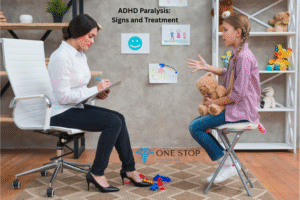Being an adult with ADHD can frequently feel overwhelming. The book “Taking Charge of Adult ADHD” by Dr. Russell Barkley is a ray of hope for people who are having trouble controlling their symptoms since it provides useful tools and techniques. This book focuses on how to survive in spite of ADHD rather than going into great detail on the diagnosis itself.
ADHD Survival Tips for Adults
Several useful methods that assist in addressing the difficulties of adult ADHD head-on are at the core of the book:
Time Management Hacks: Dr. Barkley offers straightforward yet effective time management strategies. Using visual timers, which can assist in dividing activities into small portions and instill a sense of urgency to finish them, is one of the most effective tactics. For people who easily lose track of time, externalizing it can be a game-changer since it makes it visible.
Creating Structure: Managing ADHD requires the establishment of routines and structured surroundings. Dr. Barkley emphasizes the value of forming dependable daily routines, such as establishing a morning schedule or allocating a particular area for work. These simple, dependable activities can have a significant impact on preserving concentration and minimizing outside distractions.
Breaking Down Tasks: Large tasks may seem daunting to many people with ADHD. Dr. Barkley advises dividing work into manageable chunks. This boosts motivation by reducing the sensation of overwhelm associated with larger jobs and providing a sense of accomplishment upon finishing each phase.
Stress Reduction and Mindfulness: Stress and ADHD frequently coexist. In order to control stress and improve focus, Dr. Barkley advises doing mindfulness practices. You can improve your self-regulation by becoming more conscious of your thoughts and distractions through mindfulness practice.
Using External Tools: Keeping organized requires the use of external tools, such as calendars, reminder applications, and to-do lists. The book lists a number of analog and digital technologies that can help with managing obligations, deadlines, and appointments.
Getting Professional Assistance: Lastly, Dr. Barkley stresses that individuals with ADHD can greatly benefit from getting coaching or treatment. For example, cognitive-behavioral therapy (CBT) can teach people how to control their emotions and impulsivity.
Dr. Barkley’s method is quite realistic. “Taking Charge of Adult ADHD” becomes a vital resource for anyone wishing to successfully manage life with ADHD by emphasizing what can be done and giving readers practical techniques. This book offers straightforward yet powerful methods that can help you reclaim control, whether you are looking for ways to better manage stress, focus, or arrange your day.
How OneStopPsychiatry Can Help
At OneStopPsychitry, our licensed psychiatrists provide convenient online & in-person sessions tailored to an individualized approach.
Therapist-Guided Training for ADHD
Work one-on-one with licensed therapists to:
- Learn effective time management, task breaking, and organization strategies
- Develop body-doubling routines and accountability systems
- Implement mindfulness and grounding techniques that complement your tools
3. Medication & Behavioral Integration
If medication is part of your care plan, our psychiatrists guide you through:
- Safe introduction and monitoring of ADHD medications
- Integrating behavioral tools alongside pharmacotherapy
- Regular check-ins to assess progress and adjust support tools
Take the first step towards healing with ADHD by reaching out our professional clinicions and Psuchiatrists at OneStopPsychiatry today




